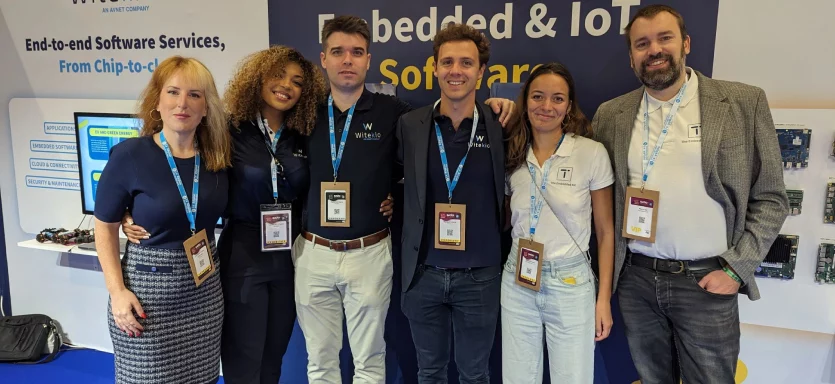Embedded Linux development using the Yocto Project
What is the Yocto Project?
The Yocto Project is an open-source collaboration project by the Linux Foundation, that helps developers create custom Linux-based systems regardless of the hardware architectures. A custom Linux BSP can also help optimize the performance of your embedded devices and streamline hardware integration.
The Yocto project provides a flexible set of tools and a space with community support where embedded developers worldwide can share technologies, software stacks, project configurations, tools, packages and best practices that can be used to create tailored Linux images for embedded devices, or anywhere a customized Linux operating system (OS) is needed.
The Yocto project consists of different layers of scripts (Layer Model) to configure the final image. These different layers can be added or removed as needed. Many layers are available through the net, which can make it easy to bring up the development of boards – especially the layers designed by the board founders and manufacturers.
Poky is a reference distribution within the Yocto Project. It provides a starting point for creating custom Linux distributions using the Yocto Project’s tools and metadata. Poky contains a collection of tools, core-packages and meta-data such as BitBake, the build engine, and OpenEmbedded-Core, the core build system metadata.
Besides generating complete images of the system in the desired format, Yocto project also allows a certain granularity-generating bootloader, kernel, root file system, and tool chain.
The Yocto project provides a flexible set of tools and a space with community support where embedded developers worldwide can share technologies, software stacks, project configurations, tools, packages and best practices that can be used to create tailored Linux images for embedded devices, or anywhere a customized Linux operating system (OS) is needed.
The Yocto project consists of different layers of scripts (Layer Model) to configure the final image. These different layers can be added or removed as needed. Many layers are available through the net, which can make it easy to bring up the development of boards – especially the layers designed by the board founders and manufacturers.
Poky is a reference distribution within the Yocto Project. It provides a starting point for creating custom Linux distributions using the Yocto Project’s tools and metadata. Poky contains a collection of tools, core-packages and meta-data such as BitBake, the build engine, and OpenEmbedded-Core, the core build system metadata.
Besides generating complete images of the system in the desired format, Yocto project also allows a certain granularity-generating bootloader, kernel, root file system, and tool chain.
The main challenges of Yocto project for embedded Linux

Domain complexity
Developing in a Yocto environment implies the team of developers is already confident with: Linux environment, well-known embedded Linux distributions and system components (boot sequence, software packages, Kernel configuration, Device tree, …) Hardware related development (Developer must ensure the functionality of each hardware brick with the embedded system, such as non-volatile storage, external peripherals, components …)

Yocto project ramp-up curve
Yocto project build system is a highly flexible set and customizable, but has a steep learning curve. There are many different ways to accomplish similar tasks to create custom Linux-based systems, and it can be difficult to choose between such ways whilst keeping the project code base of the build system clean and maintainable for the future. Before deciding to train your team to work with Yocto project tools, be ready for at least one full year of ramping-up with Yocto project for embedded Linux systems.

Understanding what changes are needed require research
Beyond the simple tutorial stage for a custom Linux distribution with Yocto project, understanding what changes need to be made for a particular design can require a significant amount of research and investigation. The Yocto Mega Manual of the open-source collaboration project helps, but experience and expertise of the embedded developers is the only way to reduce time in the development process for your project.
Key elements to consider for your Yocto Linux developments

Machine configuration
Those are all hardware constraints needed to define a Yocto machine:
- What MPU vendor is used? Which reference family?
- What are the peripherals connected to your Memory protection unit (MPU)?
- How is the memory configured?
- Cyber requirements : Secure boot, trusted elements, encryption, …
Embedded Linux distribution
Those elements define build configuration policy:
- Version of the Linux kernel
- Partitions & File system type
- Service management (system, …)
Linux kernel image configuration
Content of the final image that will be slashed on the embedded and IoT devices:
- Final application build
- All required dependencies
- Usually, at least 3 embedded Linux images are defined for a single project: development, test and production

SUCCESS STORY
W. H. Leary Co. leveling-up an automated industrial system with Yocto
W. H. Leary needed to migrate their operating system and Kernel due to an end-of-life CPU and operating system. The Monet platform – which automates the company’s world-class packaging manufacturing system -is a vital part of the companies offering, so extra care was needed to ensure ease of use and build system longevity. After an in-depth consulting workshop phase, W. H. Leary selected Witekio’s architecture concept, and development team, to deliver the:
- Reimagining of a real-time processing system, from the lower levels up
- Yocto BSP development, OS migration, and language localization support
- GUI integration for seamless user-experience
- Embedded Linux system optimization and documentation
Witekio can support your Yocto Linux developments
Ten years’ experience. Hundreds of products under our belt. Close collaboration with the open-source community. Member of the Linux Foundation. Our in-depth knowledge of Yocto Linux is unparalleled. This is why Witekio is chosen to help bring embedded Linux products to market time and time again.
We craft Yocto-based solutions that match the exact needs of your embedded Linux project. Whether it’s optimizing performance, ensuring software compliance, or streamlining development cycles, our expertise guarantees the best outcome for your project. Partner with Witekio to take your Yocto-embedded and IoT devices to the next level.
We craft Yocto-based solutions that match the exact needs of your embedded Linux project. Whether it’s optimizing performance, ensuring software compliance, or streamlining development cycles, our expertise guarantees the best outcome for your project. Partner with Witekio to take your Yocto-embedded and IoT devices to the next level.
Our Embedded software expertise
